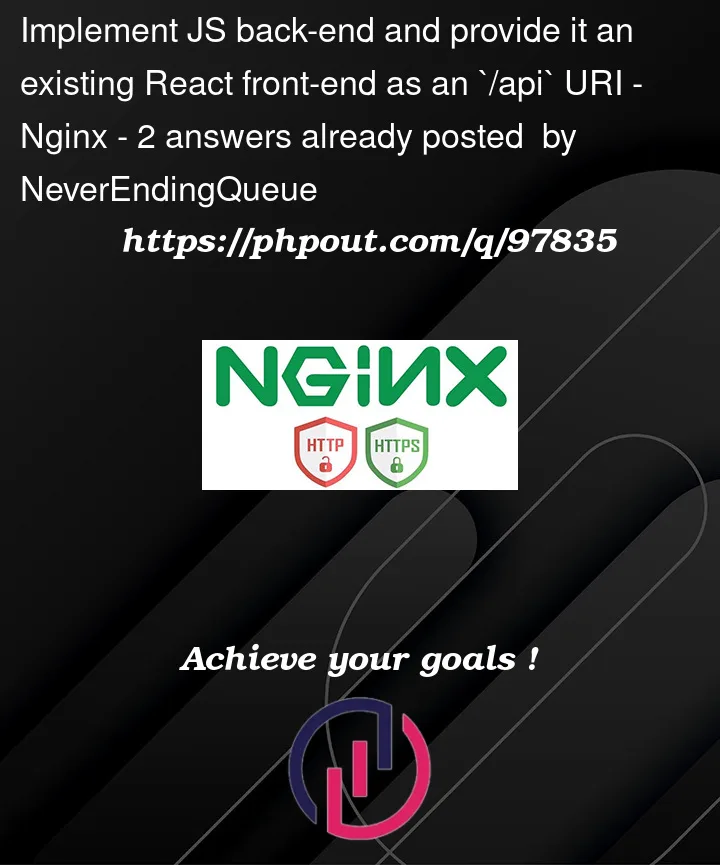I’ve got an React app, which calls internally: /api/* actions. In my case these actions are satisfied by NginX which loads relevant back-end code and returns JSON response.
I would like this React app to be "self-served", I would like to implement API back-end: /api/* using JS, so the code runs in the browser.
My app uses: react-router
<BrowserRouter>
<Switch>
<Route path={"/users/:path*"} component={UsersPage} />
<Route path={"/api/:action*"} component={ApiComponent} /> // Return RAW Json here, is it possible?
<Route component={NotFoundPage} />
</Switch>
</BrowserRouter>
Is it possible somehow to resolve the /api/*, so I can implement it in my ApiComponent and return raw JSON?
I’ve also experimented with Express JS:
app.group("/api", (router) => {
router.get("/action", (req, res) => {
// Implement API action here
});
});
app.use('/public', express.static('public')) // This allows assets to be loaded from filesystem
app.get("*", (req, res) => {
res.sendfile('./index.html'); // This loads React app
});
which worked very well, but now I’ve ended up with a problem, how to run this Express JS / NodeJS, in a browser context.
In other words, my question is what are the ways to implement API on the front-end, provide to to existing React app, and run it all in browser.




2
Answers
It’s impossible for React elements to return raw JSON because all React elements return a special object.
Maybe, you should just set a proxy in your webpack/vite config to point all
/apirequests to your node server.If you are using an HTTP client library like Axios, you can use an interceptor, which is a function that gets called for every single HTTP request made and the response received by your application in the browser itself.
Here is the sample code,
Another way is to register a service worker, which essentially acts as a proxy server and can intercept all HTTP requests.
Also, you can use browser extension like https://github.com/kzahel/web-server-chrome which creates a Web Server for Chrome, serves web pages from a local folder over the network, using HTTP. Runs offline.